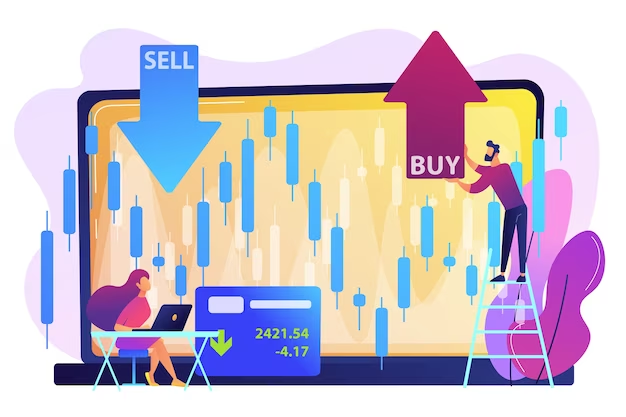Dubai, the bustling economic powerhouse of the Middle East, presents ample opportunities for investors and traders alike. Among these lucrative avenues, Forex trading has emerged as a popular choice for many, offering the potential for significant gains. Dubai’s strategic location bridges the various global markets, extending open trading hours and fostering a vibrant trading environment. Forex trading in Dubai is not just about exchanging currencies; it’s a strategic financial activity that, if done wisely, can lead to substantial profitability.
Understanding Forex Trading
What is Forex Trading?
Forex trading, also known as foreign exchange trading or currency trading, involves the buying and selling of currencies on the global market. It’s the world’s largest financial market, where trillions of dollars are traded daily. The market operates 24 hours a day, five days a week, with participants ranging from international banks to retail investors.
Key Forex Trading Concepts
- Currency Pairs: Currencies are always traded in pairs, such as EUR/USD or GBP/JPY. The first currency (base currency) is bought while the second (quote currency) is sold.
- Pips and Lots: A pip represents the smallest price movement in a currency pair, while a lot is the standard unit size of a transaction.
When it comes to leveraging and margin, these concepts magnify a trader’s potential gains, but they also increase risks. Leverage allows traders to control a large position with a small amount of capital, while margin is the actual amount required by the broker to maintain that position.
Benefits and Risks of Forex Trading
Forex trading in Dubai offers numerous benefits, including high liquidity, low transaction costs, and a market that’s open virtually around the clock. However, risks are inevitable and can include market volatility, leverage-related losses, and the complexities of understanding currency movements.

Legal Framework and Regulations in Dubai
Regulatory Bodies for Forex Trading in Dubai
- Dubai Financial Services Authority (DFSA): Overseeing financial services within the Dubai International Financial Centre (DIFC).
- Central Bank of the UAE: Governing financial institutions and exchanges outside the DIFC.
Licensing and Compliance
To start forex trading in Dubai, one must adhere to the regulatory compliance standards set by these authorities. Traders should ensure that their chosen brokers are licensed and regulated to avoid any legal or financial repercussions.
Setting Up Your Forex Trading Account
Choosing the Right Broker
When selecting a broker, factors to consider include regulatory compliance, trading platform features, customer support, and transaction costs. It is paramount to opt for a broker that aligns with your trading needs and goals.
Criteria for Selecting a Broker:
- Regulatory status and reputation.
- Types of accounts offered.
- Available trading platforms and tools.
- Accessibility of customer service.
- Competitive spreads and commissions.
Opening a Trading Account
When you’re ready to trade, the next step is to open a trading account. Here is a basic table of documents required to open a Forex trading account in Dubai:
| Document Type | Description |
|---|---|
| Identification | Passport or national ID for identity verification |
| Proof of Residence | Utility bill or bank statement for address verification |
| Financial Assessment | Documents to assess financial experience and suitability |
| Bank Information | For funds deposit and withdrawal |
Many brokers offer demo accounts, giving you a risk-free way to practice and get acquainted with the market dynamics. Using this tool, traders can simulate real-world trading scenarios, gain experience, and test strategies without risking actual capital.
Developing a Successful Forex Trading Strategy
Educating Yourself
The importance of financial education in Forex trading cannot be overstated. Before risking any real money, traders should understand the fundamentals of the market, common trading terms, and the factors that affect currency values. From online courses and webinars to in-depth articles and ebooks, a wealth of resources is available to help budding traders gain the knowledge they need.
Developing a Trading Plan
Creating a structured and disciplined trading plan is crucial for long-term profitability. This plan should include your financial goals, trading schedule, analysis methods, and risk management rules. Keeping a trading journal where all trades are documented can also help traders evaluate their performance and adjust their strategies accordingly.
Analysis Techniques
- Fundamental Analysis: This involves evaluating currencies based on economic indicators and news events.
- Technical Analysis: This involves studying historical price movements to predict future price action.
Risk Management
Effective risk management strategies, such as setting stop-loss orders and determining proper position sizes, should be an integral part of any trader’s plan. These can help minimize losses and protect capital during unfavorable market conditions.
Trading Psychology
The psychology of trading is another essential factor. Emotions like fear and greed can lead to impulsive decisions, so it is vital to keep a calm and composed mindset while dealing with the ups and downs of the market.

Getting Started with Trading
Life of a Forex Trade
Understanding the lifecycle of a Forex trade from start to finish can help traders execute their trades more effectively.
Research and Analysis
Skilled traders often spend hours performing research and analysis before placing a trade. This can involve monitoring economic calendars for news events that may affect their chosen currency pairs, using technical analysis to find entry and exit points, and staying updated on global political and financial developments.
Making the Trade
Executing the trade involves choosing the right time to enter the market, determining the position size, and setting stop-loss and take-profit orders. Attention to detail and precision in this step are essential, as timing can significantly impact the trade’s success.
Monitoring and Closing the Trade
After entering a trade, continuous monitoring is necessary to ensure that the market conditions align with your strategy. Traders should be prepared to close the trade manually if needed, or let the stop-loss/take-profit orders do it automatically once the set parameters are met.
Staying Informed and Adapting to Market Changes
Importance of Market News and Updates
Regularly following market news and updates helps traders anticipate market movements and adjust their strategies accordingly. Being aware of events such as interest rate changes, economic reports, and political events can give traders a competitive edge.
Continual Learning and Strategy Adaptation
In the constantly evolving Forex market, continual learning is essential. Traders must be willing to adapt their strategies based on market conditions and their own trading results. This adaptability can differentiate between sustained success and failure in currency trading.

Conclusion
Learning how to start trading from scratch in Dubai involves a mix of education, planning, and practical experience. By understanding the market, setting up the right accounts, developing a solid strategy, and staying informed and adaptive, traders can embark on this potentially profitable journey with greater confidence. Always remember that while Forex trading offers significant opportunities for gains, it is also fraught with risk, and prudent practices are essential.
FAQs
1. What is the minimum capital required to start Forex trading in Dubai?
The minimum capital depends on individual brokers, but some may allow you to start trading with as little as $100.
2. Can anyone start Forex trading in Dubai?
Yes, anyone with a sufficient understanding of the market, a trading plan, and access to a regulated broker can start Forex trading in Dubai.
3. How do taxes work for Forex traders in Dubai?
Dubai offers tax benefits for traders, with no personal or capital gains taxes. However, it’s advised to consult with a financial advisor for individual circumstances.
4. Is it safe to do Forex trading in Dubai?
Safety in forex trading companies in dubai from working with regulated brokers and employing sound risk management strategies. Dubai’s legal framework adds an extra layer of security.
5. What are common mistakes beginners make in Forex trading?
Common mistakes include overleveraging, failing to manage risk, not having a solid trading plan, and letting emotions drive trading decisions.







